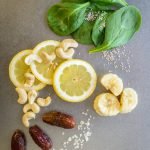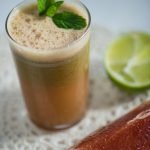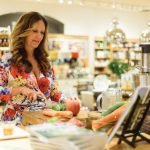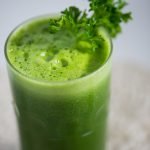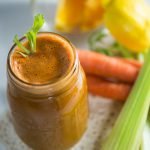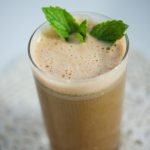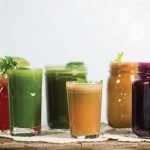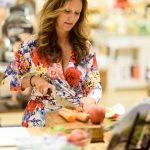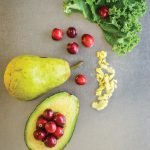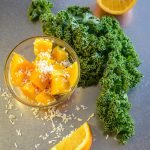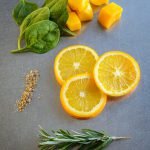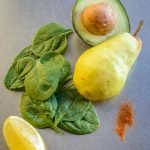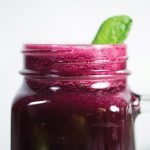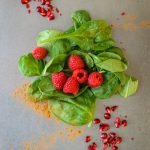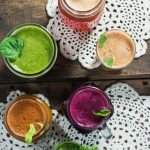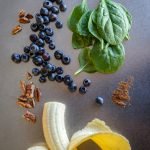+ By Andrea Stuart + Photography By Alison Harbaugh
Cold breaths exhale from the vents overhead, washing over formerly smooth skin, now puckered with goosebumps. The only movement in the room is a subtle flutter in the fluorescent lights overhead and the pulsation of a heartbeat that grows stronger with each passing second. When the doctor enters, a flush comes over the patient’s face, and fingers become rigid in anticipation. When the doctor begins to speak, her words are drowned out by a parade of thoughts, until the patient hears the following words, “You don’t need your lady parts, anymore. You’re in your 40s.”
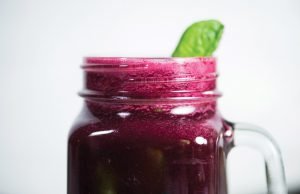 Integrative Nutrition health coach and proprietor of Whole Health Designs, Lisa Consiglio Ryan was aghast at the idea that a doctor could believe that a woman would not need her reproductive organs at any stage of life. Instead of taking the doctor’s suggestion to have a full hysterectomy to remove the possibly malignant 15-centimeter fibroid inside of her, she opted to have only the mass removed. She left presumption and fear-based decision-making at the door to see the situation from all angles. This was to become the approach she adopted when she later became a nutrition counselor.
Integrative Nutrition health coach and proprietor of Whole Health Designs, Lisa Consiglio Ryan was aghast at the idea that a doctor could believe that a woman would not need her reproductive organs at any stage of life. Instead of taking the doctor’s suggestion to have a full hysterectomy to remove the possibly malignant 15-centimeter fibroid inside of her, she opted to have only the mass removed. She left presumption and fear-based decision-making at the door to see the situation from all angles. This was to become the approach she adopted when she later became a nutrition counselor.
Ryan trusted her intuition. She firmly took control over the care she received by listening to the voices of reason in her head, doing research, and working with medical professionals who respected her. The anesthesiologist said a meditation with her as she went under, and a recorded meditation was played during her surgery. Ryan knew she had to create an experience that would promote healing. “When I woke up, I wasn’t the same. Maybe for the first time in my life, I harnessed my personal power,” she says.
Taking control over one’s health is perhaps the most personal and challenging decision a person can make. With so many conflicting ideas about what it means to be healthy circulating the health and media arenas nowadays, taking control and making the right decision can often feel overwhelming. Consider this description of a typical advertisement found on the Internet:
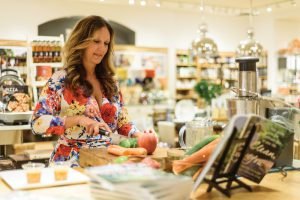 A Lolita-type young woman is standing on the precipice of a green knoll overlooking a city. A soft halo of light surrounds her as she flips her sun-bleached hair in slow motion while looking over her shoulder at the camera. (Cut scene.) She is now running, her compression pants hugging her hips and buttocks. Her bare midriff is accented by a brightly colored sports bra that enhances her breasts. She stops at a bistro with friends, each of them young, thin, and dressed in suggestive workout attire. Young men walk by, flirtatiously. The narrator says, “Get fit, get him!”
A Lolita-type young woman is standing on the precipice of a green knoll overlooking a city. A soft halo of light surrounds her as she flips her sun-bleached hair in slow motion while looking over her shoulder at the camera. (Cut scene.) She is now running, her compression pants hugging her hips and buttocks. Her bare midriff is accented by a brightly colored sports bra that enhances her breasts. She stops at a bistro with friends, each of them young, thin, and dressed in suggestive workout attire. Young men walk by, flirtatiously. The narrator says, “Get fit, get him!”
Ryan has been wrangling messages like this for much of her life, messages that either validate fears of inadequacy or condemn having a body type outside of conventional standards. In her 20s, she experienced a barrage of health issues, including fibromyalgia, hypothyroidism, candida, rosacea, cystitis, and numerous allergies. At the time, her idea of health hung on social expectations, trends, and misinformation.
After she had children, Ryan—a triathlete—had a reality check when, one evening after preparing dinner, she stood above the table, watching her family eat. A few minutes into the meal, her daughter asked, “Momma, why aren’t you eating?” “I thought to myself, ‘How did she notice?’ And I knew I needed to get my act together.”
Within six months after receiving professional help, she was on track. She figured out how to have a healthy relationship with food. She resigned from teaching and became certified with Integrative Nutrition. “After I healed myself, I was so empowered!” she exclaims. “I wanted to help others live a full life instead of being in pain and on meds.”
“I teach people that a diet is like Harry Potter: my magic wand won’t work the same for you as it does for me,” she says of working with clients’ individual constitutions and metabolisms. Her expertise is in finding each person’s “magic nutrition wand.”
In Ryan’s new book, Go Clean, Sexy You, she shares her struggles and successes, and illustrates the importance of moderation. It’s not about deprivation; it’s about building communication with your body, which is sacred, and learning its subtle cues so that you can give the body the tools it needs to heal. Once people clean out their systems and unearth the foods unique to their body’s needs, they experience freedom. This self-awareness frees them from physical and emotional discomfort. It’s about knowledge and moderation. Ryan lives an 80/20 life: 80 percent on track, 20 percent off.
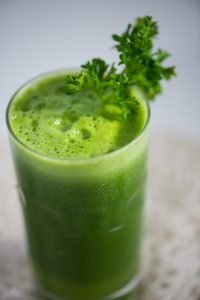 “We may use food to punish and reward ourselves because we can control what we put in our bodies,” she says. Yet, instead of trying to gain control through that system of thought, which is often harmful, we can place our energy on learning what is best for our bodies, and choosing those foods. That’s why she also teaches how to create a dialogue with food purveyors, farmers, and ranchers. “These conversations provide us with information that allows us to make healthy decisions for ourselves,” she explains.
“We may use food to punish and reward ourselves because we can control what we put in our bodies,” she says. Yet, instead of trying to gain control through that system of thought, which is often harmful, we can place our energy on learning what is best for our bodies, and choosing those foods. That’s why she also teaches how to create a dialogue with food purveyors, farmers, and ranchers. “These conversations provide us with information that allows us to make healthy decisions for ourselves,” she explains.
It’s not always easy, rewriting previously held truths. For Ryan’s Italian family, her new lifestyle was initially an alien concept. However, with time they have come to respect her drive to create a healthier body and world.
This fall, Ryan is taking her viewpoint of sacred bodies to the stage for Ignite Annapolis—a series that hosts 16 presenters who spark new conversations and collaborations with the audience. In five minutes and 20 slides, she will present Lady Parts, a short presentation on our perceptions of our bodies. It is intended to express how thoughts and stress can manifest into disease while sharing how the wisdom in every cell of our bodies is essential for optimal health. She asks people and the medical community to be thoughtful about removing body parts, carefully considering all options and consequences, rather than treating current conventional health practices as standard procedure.
She is also applying for a grant, in hopes of educating children in Baltimore about nutrition. “I would be able to work with farmers, co-ops, and other food providers that supply wholesome food. I want to help children make healthy decisions for themselves. Many of these kids’ families grocery shop at 7-11,” says Ryan.
Because food is provocative, seductive, and essential, it has the power to build us up or break us down. Ryan uses her experiences and knowledge to guide people in understanding the role of nutrition in their lives so they can harness their own personal power. █



